Are you considering a pause in your academic journey? Seeking a deferment can be a crucial step when life throws unexpected challenges your way. In this article, we'll discuss how to effectively draft a request letter for academic deferment approval, ensuring you communicate your needs clearly and professionally. Join us as we explore the key elements that can strengthen your appeal and set you on the right path to success!

Clear intent and purpose.
A request for academic deferment, specifically for a student enrolled at a university or college, typically outlines the reasons for seeking a delay in studies and emphasizes the intent to return. When a student, such as a sophomore pursuing a Bachelor of Arts in Psychology at the University of California, seeks a deferment with the goal of addressing personal health issues, the communication needs to clarify specific circumstances. For instance, mentioning a diagnosed medical condition requiring treatment and recovery time can provide context. The intention to resume studies in the following semester, such as Spring 2024, should be illustrated with a commitment to maintain academic performance post-deferment. Additionally, highlighting previous academic achievements, including a GPA of 3.8 and active participation in campus organizations, can further support the case for approval.
Personal and academic details.
Students facing unforeseen circumstances often seek academic deferment to maintain their academic standing. In many universities, this process requires detailed personal and academic information for approval. Key details include full name, student identification number, and current degree program. Additionally, students should specify the intended length of deferment, preferably detailing the rationale such as health issues, financial difficulties, or personal circumstances impacting their ability to continue studies. Academic details should encompass current course enrollments, grades, and any completed credits, highlighting the student's academic progress. Providing supporting documentation, such as medical certificates or financial statements, strengthens the deferment request. Timely submission of this request is crucial to ensure appropriate academic advisement and compliance with university guidelines.
Supporting reasons.
Academic deferment requests often arise due to various compelling reasons. Health issues can impede a student's ability to focus on studies, with conditions such as severe mental health disorders or chronic illnesses requiring time for recovery. Family emergencies, such as the need to provide immediate support to a relative, can also justify a deferment. Financial difficulties may hinder the ability to pay tuition fees, prompting a request for a temporary pause. Career opportunities, including internships or job placements related to one's field of study, can add to the rationale for postponing academic commitments. Each of these factors underscores a student's need for understanding and support from the academic institution in navigating their educational journey.
Proposed deferment duration.
Students seeking academic deferment often request a specific duration, such as one semester (approximately 5 months) or an entire academic year (10 months). This proposal must be clearly articulated, outlining the reasons for the deferment, such as health issues (temporary disabilities requiring recovery), personal circumstances (family emergencies or personal development opportunities), or academic challenges (need for additional preparation in coursework). Providing documentation, like medical certificates or letters from counselors, can strengthen the legitimacy of the request. It is also important to reference the university's deferment policy (found in the student handbook or academic catalog), ensuring compliance with all institutional requirements.
Contact information for follow-up.
Students often request academic deferment approval for various reasons, including personal challenges or health issues. Essential contact information, such as an email address and phone number, facilitates follow-up with academic advisors or administration offices. Clear communication channels enable prompt responses and necessary documentation. A well-structured request should include the student's full name, student ID number, and specific details about the intended period of deferment, whether it is a semester or academic year. This information helps streamline the administrative process, ensuring that requests are handled efficiently. Additionally, providing a mailing address for official correspondence might be beneficial for receiving formal notifications or updates regarding the deferment status.
Letter Template For Request Academic Deferment Approval Samples
Letter template of request for academic deferment due to personal reasons
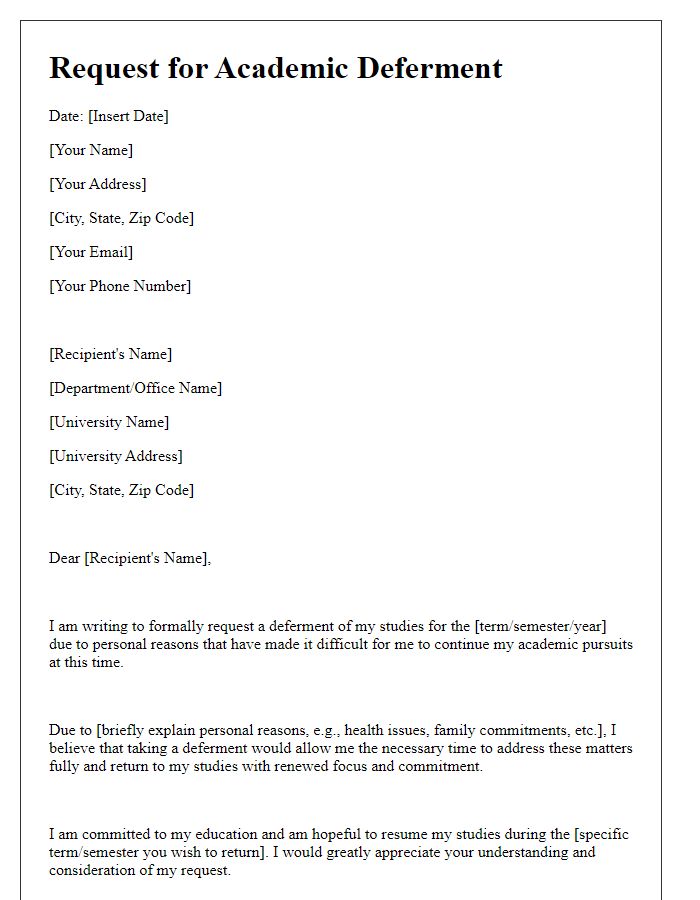
Letter template of request for academic deferment for family obligations
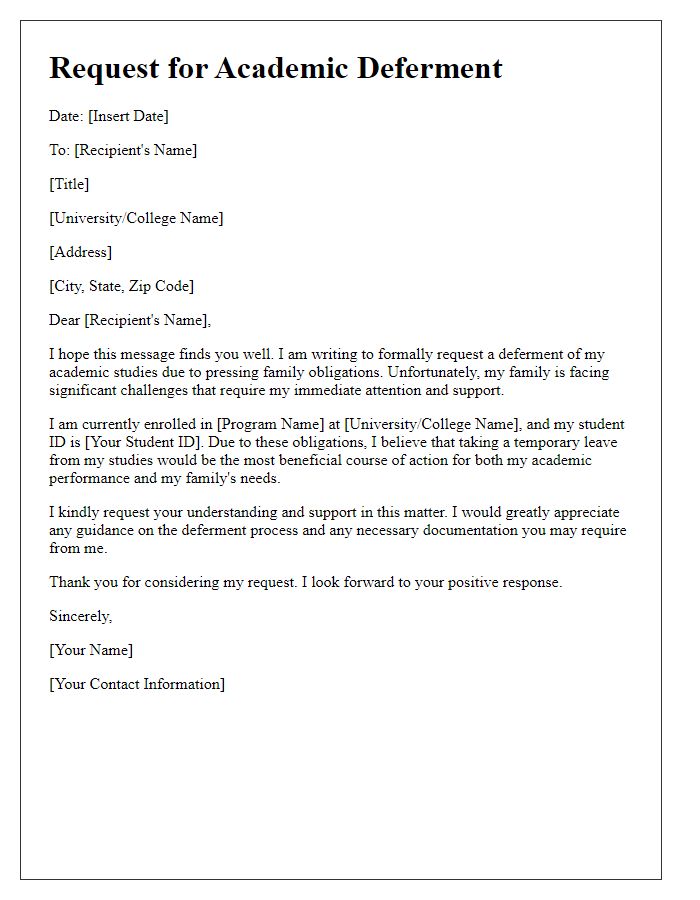
Letter template of request for academic deferment due to financial constraints
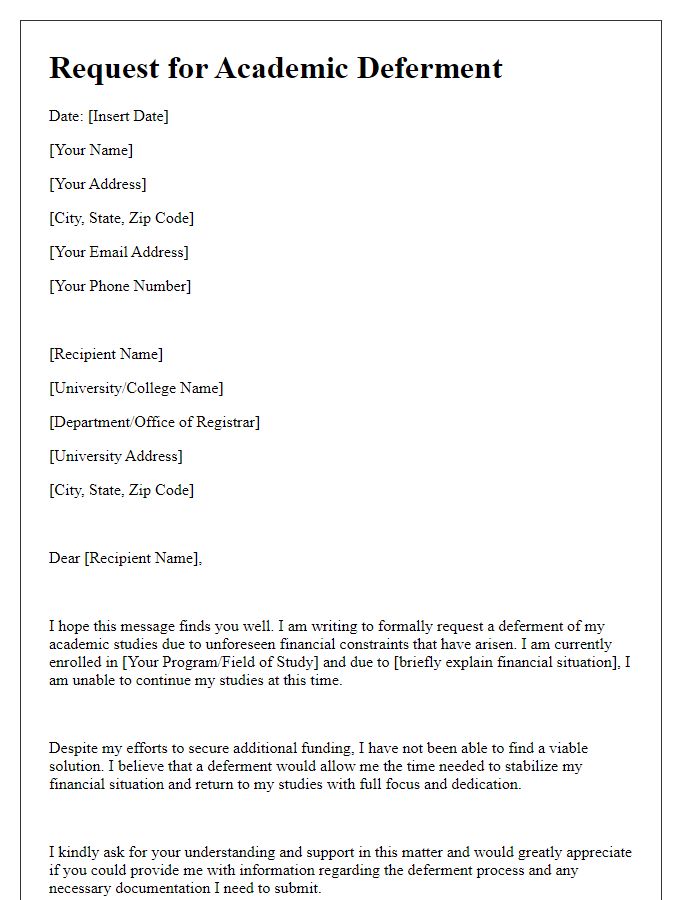
Letter template of request for academic deferment for travel opportunities
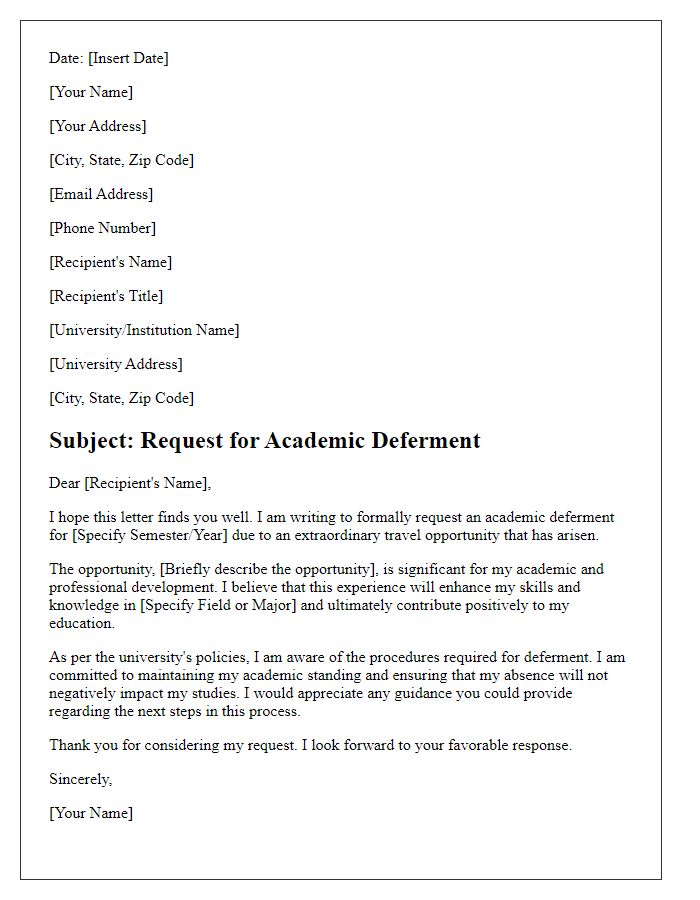
Letter template of request for academic deferment for mental health reasons
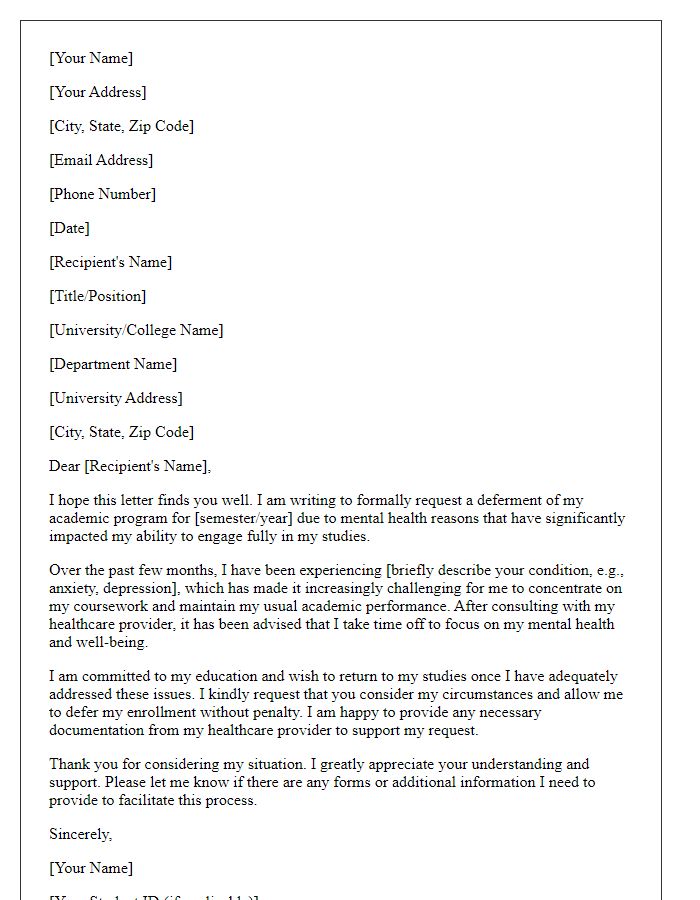
Letter template of request for academic deferment for extracurricular pursuits
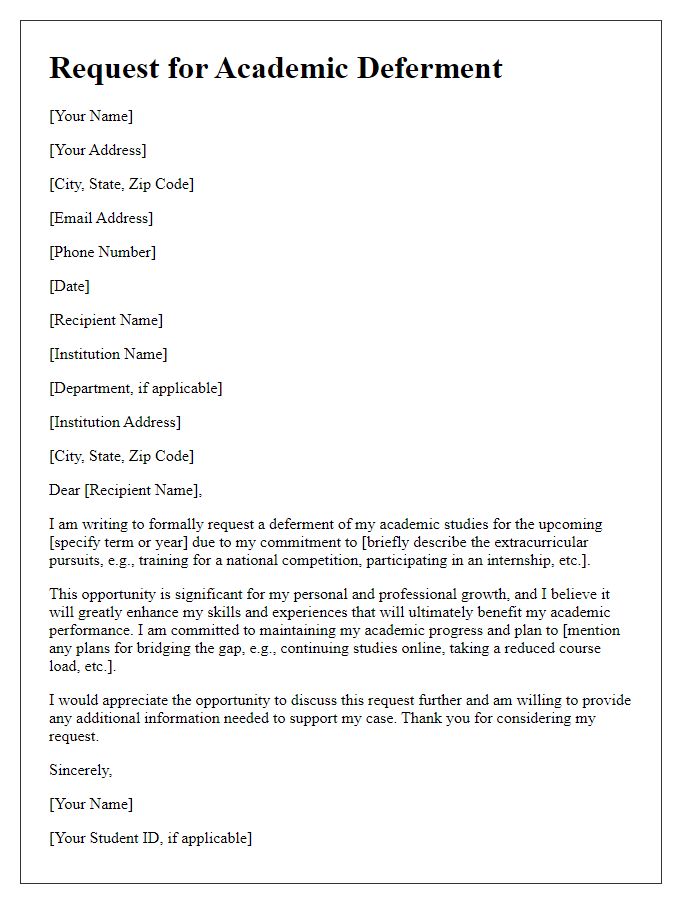
Letter template of request for academic deferment for internship placement
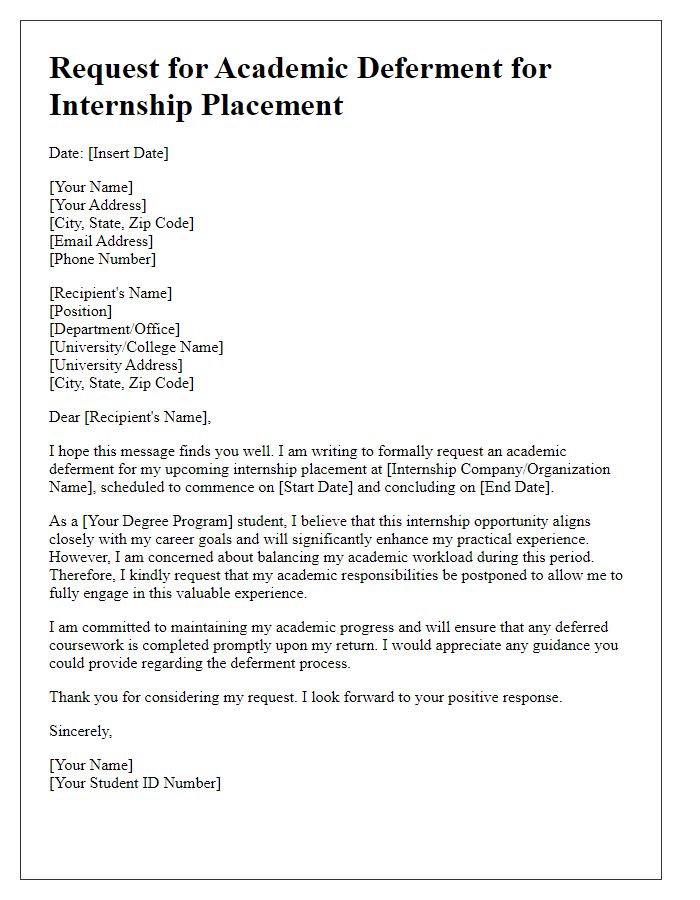

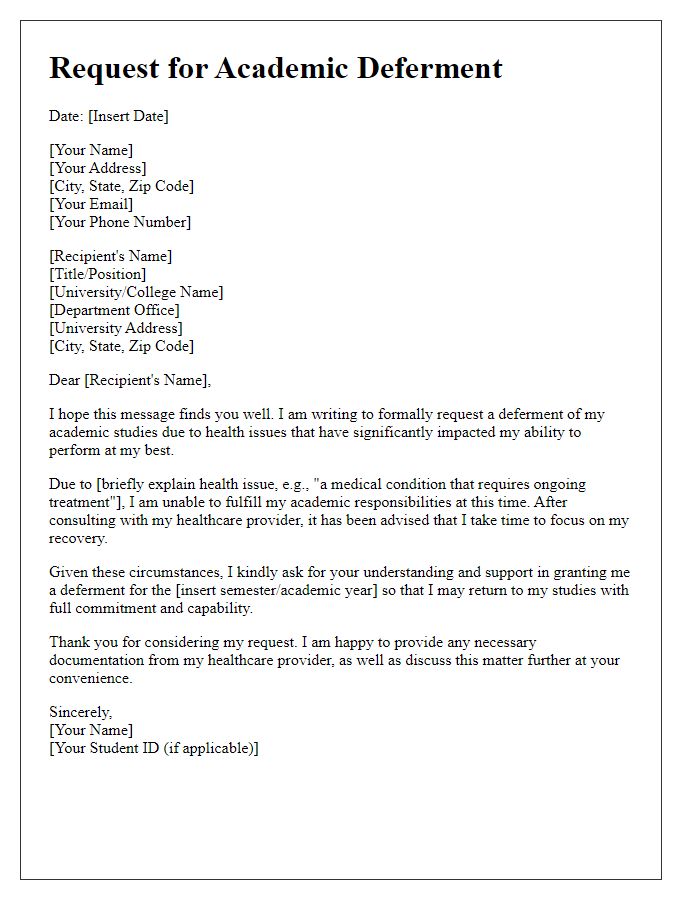
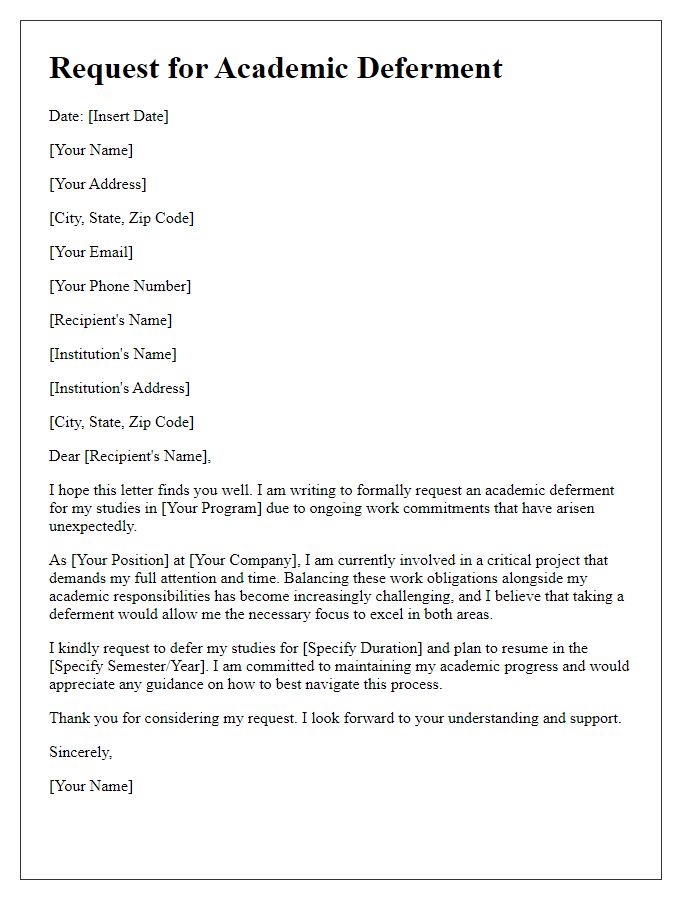
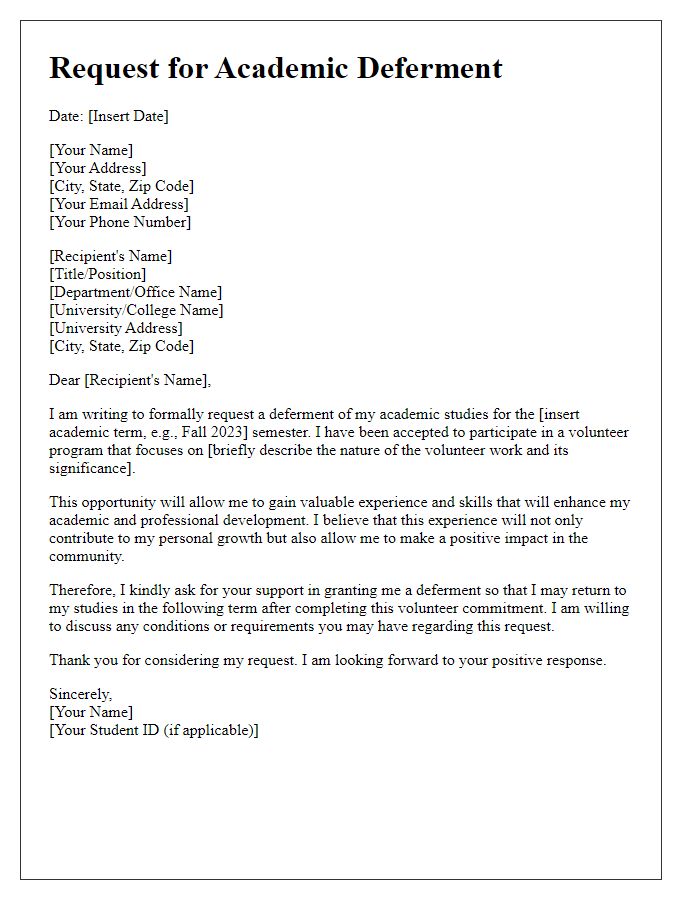


Comments